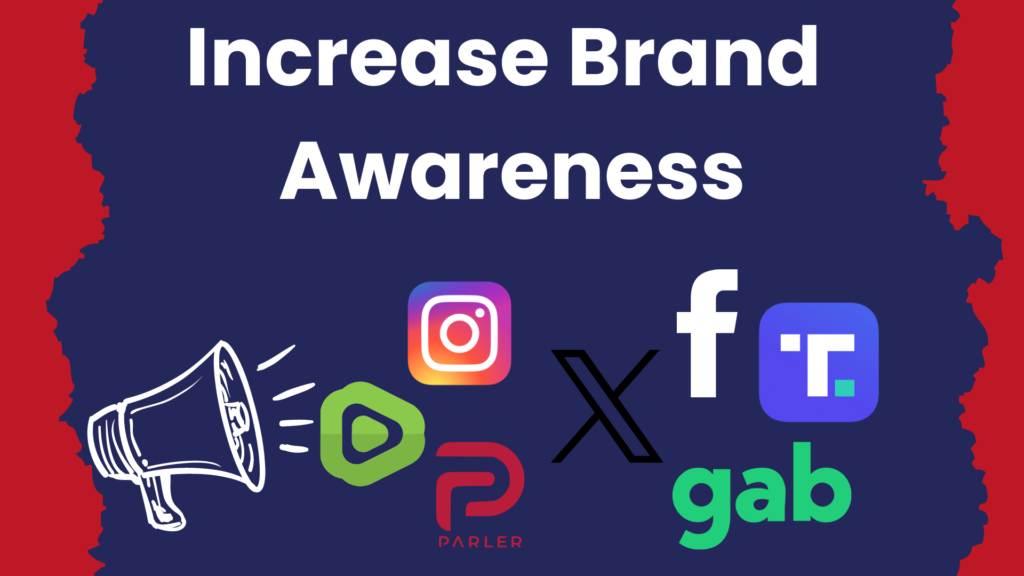Effective Strategies for Social Media Marketing
In the digital age, social media has become a powerful tool for businesses. It’s a platform where brands can engage with their audience, build relationships, and drive sales.
But to truly harness the power of social media, you need a solid strategy.
This is where social media marketing strategies come into play. They provide a roadmap for your social media efforts, guiding you on how to reach your target audiences, generate leads, and increase brand awareness.
In this article, we’ll delve into effective strategies for social media marketing. We’ll explore how to create a strong social media presence, the benefits of social media marketing, and how to post on social media to engage your audience.
We’ll also discuss various social media tactics you can use to enhance your marketing efforts. From creating a social media marketing plan to executing impactful social media marketing campaigns, we’ve got you covered.

Whether you’re a seasoned digital marketer or a business owner looking to boost your online presence, this guide will provide valuable insights. We’ll also touch on the use of short form video, a popular content format that can significantly boost engagement.
We’ll help you set clear social media goals and align them with your overall business goal. We’ll also guide you on how to conduct a competitive analysis to inform your social media strategy.
Creating engaging content is key to a successful social media strategy. We’ll provide tips on content creation that resonates with your audience and encourages interaction.
We’ll also delve into the importance of social media engagement and how it can benefit your brand.
By the end of this article, you’ll have a comprehensive understanding of social media marketing strategies. You’ll be equipped with the knowledge and tools to enhance your social media marketing efforts.
So, let’s dive in and start exploring the world of social media marketing.
Understanding Social Media Marketing
Social media marketing is a powerful tool in the digital marketing arsenal. It involves using social media platforms to connect with your audience, build your brand, increase sales, and drive website traffic.
This form of marketing involves publishing great content on your social media profiles, listening to and engaging with your followers, running social media advertisements, and analyzing your results. It’s about creating a community around your brand and fostering engagement on social media platforms.
Social media marketing goes beyond just posting updates to your company’s social media profiles. It also includes engaging with your audience and looking for new opportunities to increase reach and visibility.
Understanding social media marketing is crucial for businesses today. With the right strategies, you can reach out to your target audience, engage with them, and build a strong online presence. This can lead to increased brand awareness, more leads, and higher sales.
The Benefits of Social Media Marketing
Social media marketing offers numerous benefits for businesses. It’s a cost-effective way to reach a large audience and can help businesses of all sizes reach their marketing goals.
One of the main benefits of social media marketing is its ability to increase brand awareness. By regularly posting on social media and engaging with your audience, you can build your brand’s online presence. This can lead to more people recognizing your brand, leading to more potential customers.
Social media marketing also allows businesses to engage with their audience in a more personal way. You can respond to comments, answer questions, and even handle customer service issues. This can lead to increased customer satisfaction and loyalty.
Here are some key benefits of social media marketing:
- Increased brand awareness
- Higher conversion rates
- Improved customer satisfaction
- Better search engine rankings
- Cost-effective marketing strategy
Identifying Your Target Audiences
Understanding your target audience is a crucial step in any marketing strategy, including social media marketing. It helps you create content that resonates with your audience and meets their needs.
To identify your target audience, you need to understand their demographics, interests, and behaviors. This includes factors like age, gender, location, income level, and more. You can gather this information through market research, customer surveys, and social media analytics.
Once you have a clear picture of your target audience, you can create a buyer persona. This is a fictional representation of your ideal customer, which can guide your content creation and marketing strategies.
Here are some steps to identify your target audience:
- Conduct market research to understand your audience’s demographics and interests.
- Use social media analytics to gather data about your followers.
- Create a buyer persona to guide your marketing efforts.
- Regularly review and update your audience profile as your business and market evolve.

Setting Clear Social Media Goals
Setting clear and measurable social media goals is a critical step in developing effective social media marketing strategies. These goals provide direction for your social media efforts and a benchmark against which you can measure your success.
Your social media goals should align with your overall business objectives. Whether it’s increasing brand awareness, generating leads, driving website traffic, or improving customer engagement, each goal should contribute to your broader business goals.
Here are some steps to set clear social media goals:
- Identify your overall business objectives.
- Determine how social media can support these objectives.
- Set specific, measurable, achievable, relevant, and time-bound (SMART) goals.
- Regularly review and adjust your goals based on performance and business changes.
Crafting a Social Media Marketing Plan
A well-crafted social media marketing plan is a roadmap to your success in the digital world. It outlines your social media goals, the tactics you’ll use to achieve them, and the metrics you’ll track to measure your progress.
Your social media marketing plan should be comprehensive yet flexible. It should cover all aspects of your social media presence, from the platforms you’ll use to the types of content you’ll post. At the same time, it should be adaptable to changes in your business environment or social media trends.
Here are some steps to craft an effective social media marketing plan:
- Define your social media goals.
- Identify your target audiences.
- Choose the right social media platforms.
- Develop a content strategy.
- Plan your social media campaigns.
- Set up a social media content calendar.
- Determine your key performance indicators (KPIs).
- Monitor and adjust your plan as needed.


Competitive Analysis for Social Media
Competitive analysis is a crucial part of any social media marketing strategy. It involves studying your competitors to understand their strengths, weaknesses, and tactics. This information can help you make informed decisions about your own social media marketing efforts.
To conduct a competitive analysis for social media, follow these steps:
- Identify your main competitors.
- Analyze their social media presence.
- Study their content strategy.
- Look at their engagement rates.
- Understand their unique selling propositions.

By understanding what your competitors are doing well, you can learn from their successes. Similarly, by identifying their weaknesses, you can find opportunities to differentiate your brand.
Content Creation: Engaging Your Audience
Creating engaging content is at the heart of successful social media marketing strategies. It’s about more than just selling products or services. It’s about providing value to your audience, sparking conversations, and building relationships.
To create engaging content, consider the following tips:
- Understand your audience’s interests and needs.
- Use a variety of content formats, such as images, videos, and text posts.
- Make your content interactive with polls, quizzes, and questions.
- Tell stories that resonate with your audience.
- Use humor and creativity to make your content stand out.
Remember, the goal of your content should be to engage your audience, not just to promote your brand. By focusing on creating content that your audience finds valuable and interesting, you can increase engagement and build a loyal following.
Utilizing Short Form Video Content
Short form video content is a powerful tool in social media marketing. Platforms like TikTok and Instagram Reels have made this format popular, and brands are leveraging it to engage their audiences in new and exciting ways.
Short form videos are typically less than a minute long, making them perfect for capturing the attention of today’s busy consumers. They can be used to showcase products, share tips and tutorials, tell stories, and more.
The key to successful short form video content is to make it engaging and entertaining. Use music, filters, and effects to make your videos stand out. And don’t forget to include a clear call to action to drive engagement.
The Power of Posting Regularly
Consistency is key when it comes to social media marketing. Posting regularly not only keeps your brand top of mind for your audience, but it also signals to social media algorithms that your content is relevant and valuable.
A content calendar can be a useful tool for maintaining a regular posting schedule. It allows you to plan your content in advance, ensuring that you always have something to post.
Remember, quality should always come before quantity. It’s better to post less frequently but with high-quality content, than to post daily with content that doesn’t provide value to your audience.
Social Media Tactics to Increase Brand Awareness
Brand awareness is a crucial aspect of any social media marketing strategy. It’s about making sure your brand is known, recognized, and remembered by your target audience.

Here are some tactics to increase brand awareness on social media:
- Use consistent branding across all your social media profiles. This includes your logo, colors, and brand voice.
- Collaborate with influencers who can introduce your brand to their followers.
- Run social media contests or giveaways that encourage users to share your content.
- Use hashtags to increase the visibility of your posts.
- Share user-generated content that showcases your products or services in real life.
Remember, increasing brand awareness is not just about reaching more people. It’s about reaching the right people. By targeting your social media efforts towards your ideal customer, you can increase brand awareness among the people who are most likely to become your customers.
Generating Leads Through Social Media
Lead generation is a key objective for many businesses on social media. It involves attracting and converting strangers and prospects into someone who has indicated interest in your company’s product or service.

Here are some strategies for generating leads through social media:
- Use social media advertising to target potential leads. Platforms like Facebook and LinkedIn offer advanced targeting options to reach the right audience.
- Offer valuable content in exchange for contact information. This could be an ebook, a webinar, or a free trial of your product.
- Use a call-to-action (CTA) in your social media posts to encourage users to take the next step. This could be visiting your website, signing up for a newsletter, or downloading a resource.
- Host a live webinar or Q&A session on social media. This not only provides value to your audience, but also gives you the opportunity to collect contact information.
Remember, the goal of lead generation is not just to get more leads, but to get quality leads. This means attracting individuals who are likely to become customers. By providing value and making it easy for users to engage with your brand, you can turn your social media platforms into powerful lead generation tools.
Measuring and Adjusting Your Social Media Efforts
Measuring the success of your social media marketing efforts is crucial. It helps you understand what’s working and what’s not. This way, you can make informed decisions and improve your strategies.
Here are some key metrics to track:
- Engagement: This includes likes, comments, shares, and saves. High engagement indicates that your content resonates with your audience.
- Reach: This is the number of unique users who see your content. A larger reach means your content is getting in front of more people.
- Website traffic: This is the number of visitors to your website from social media. Increased traffic can lead to more conversions.
- Leads: These are potential customers who have shown interest in your product or service. Tracking leads helps you understand how well your social media efforts are generating interest.
- Conversions: These are the number of leads who take a desired action, such as making a purchase or signing up for a newsletter. A high conversion rate indicates that your social media marketing is effective.
Remember, the goal is not just to collect data, but to use it to improve your social media marketing. Regularly review your metrics and adjust your strategies based on your findings. This will help you optimize your social media marketing efforts and achieve better results.
Let 6H Services Boost Your Brand with Social Media Marketing
In today’s fast-paced digital world, effective social media marketing is crucial for reaching and engaging your target audience. Whether you’re looking to boost your political campaign or grow your business, mastering the art of social media can make all the difference. At 6H Services, we understand the unique challenges you face and offer a comprehensive suite of tools—from polling and direct mail to social media and texting—to ensure your message resonates where it matters most.
Ready to elevate your social media strategy and make a lasting impact? Contact 6H Services today and let our expert team craft a customized plan that drives results. Your success is our mission—let’s make it happen!




